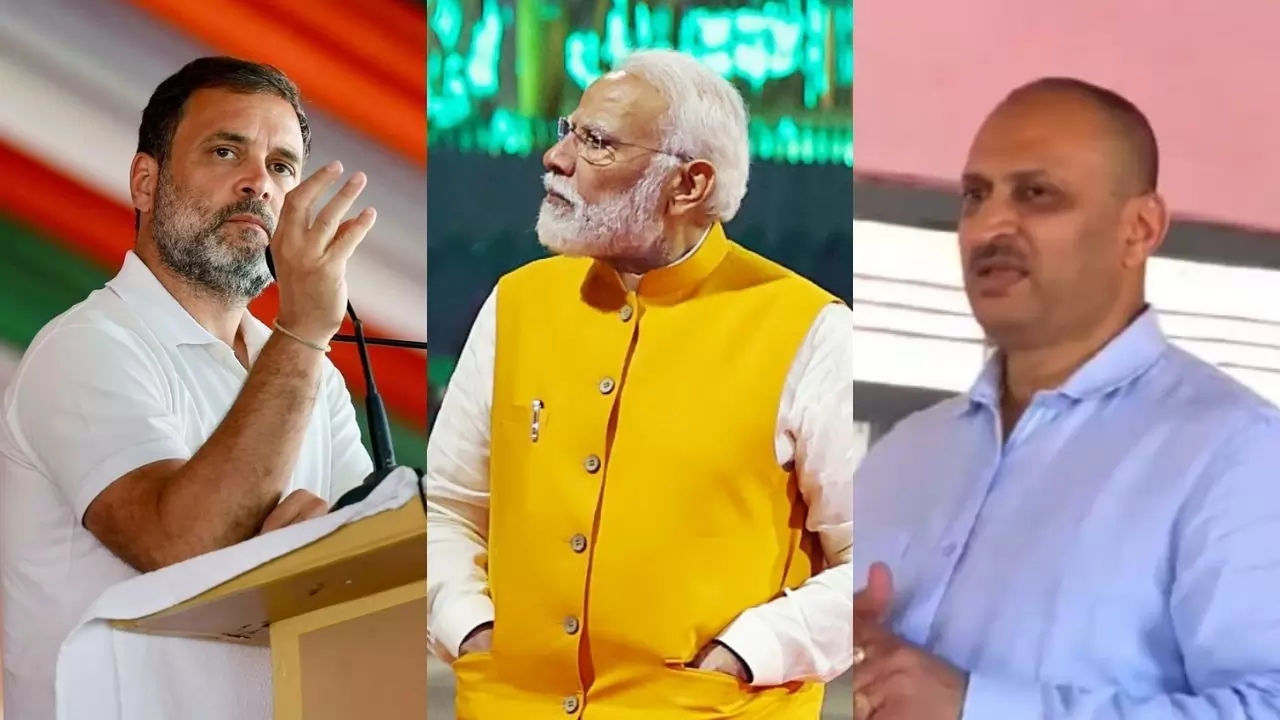
ANI
Congress leader Rahul Gandhi lashed out on Monday over Prime Minister Narendra Modi's 'silence' regarding a controversial statement made by BJP MP Anantkumar Hegde, deeming it 'dangerous.' Hegde claimed that amending the Constitution to reverse perceived 'anti-Hindu' changes was made during Congress rule.
Rahul Gandhi said that the upcoming Lok Sabha elections is a clash of ideologies and framed it as a choice between upholding the Constitution (Samvidhan) or veering towards a different agenda (Sanghvidhan).
भाजपा सांसद के ‘संविधान बदलने’ वाले बयान पर नरेंद्र मोदी की चुप्पी खतरनाक है।
— Rahul Gandhi (@RahulGandhi) March 11, 2024
अब चुनाव दो विचारधाराओं के बीच है!
संविधान या संघविधान,
सामाजिक न्याय या शोषण,
धर्मनिरपेक्षता या सांप्रदायिकता,
नागरिक अधिकार या बेबस जनता,
बोलने की आज़ादी या डर भरी चुप्पी,
मोहब्बत या नफ़रत,…
The Congress leader expressed the gravity of potential constitutional changes and asserted that altering India's foundational document, earned through the struggle for independence, would risk compromising the nation's hard-won freedom.
During a public address in Uttara Kannada district, Karnataka BJP MP Anantkumar Hegde proposed amending the Constitution to reverse what he labeled as 'anti-Hindu' alterations made during Congress governance. Hegde outlined the necessity of securing a two-thirds majority across parliamentary and state bodies for such amendments to take effect.
Karnataka | Uttara Kannada BJP MP Anantkumar Hegde says, "They (Congress) have changed the Constitution and brought laws to oppress the entire Hindu society. If all this is to be changed, it will not happen with this minority vote. Both sides need a 2/3 majority. This time PM… pic.twitter.com/qltT44z9AL
— ANI (@ANI) March 10, 2024
Moreover, Hegde stressed the BJP's aim to secure 400 seats in the upcoming Lok Sabha elections to facilitate the enactment of the Citizenship Amendment Act (CAA).
However, responding to Hegde's statement, the BJP clarified that it does not align with the party's position and pledged to seek clarification from the Karnataka MP.
Anantkumar Hegde drew criticism in 2017 when he advocated for constitutional changes, asserting the ruling BJP's intentions to amend the document. At the time, Hegde, serving as a Union Minister, stirred controversy by suggesting the Constitution's alteration despite its inclusion of the term 'secular.'





Copyright © 2026 Top Indian News
